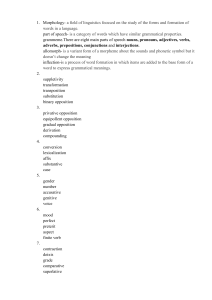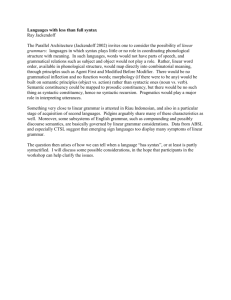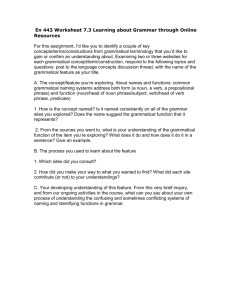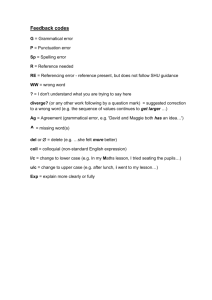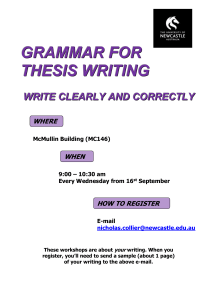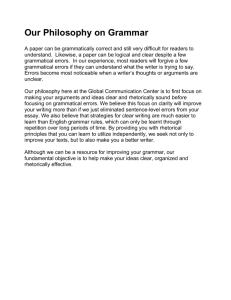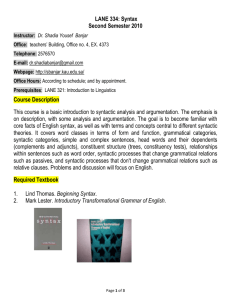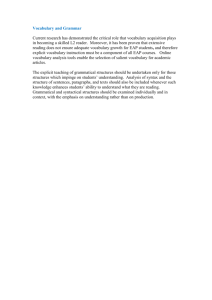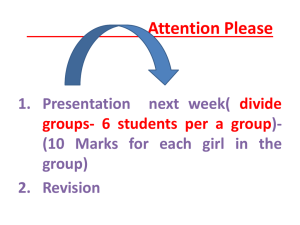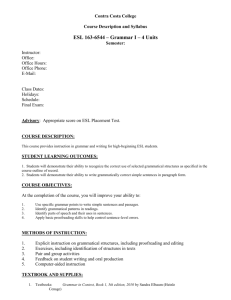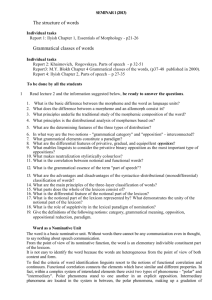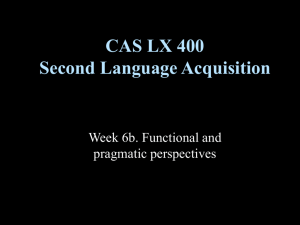The following list of questions is meant to help students prepare for
advertisement
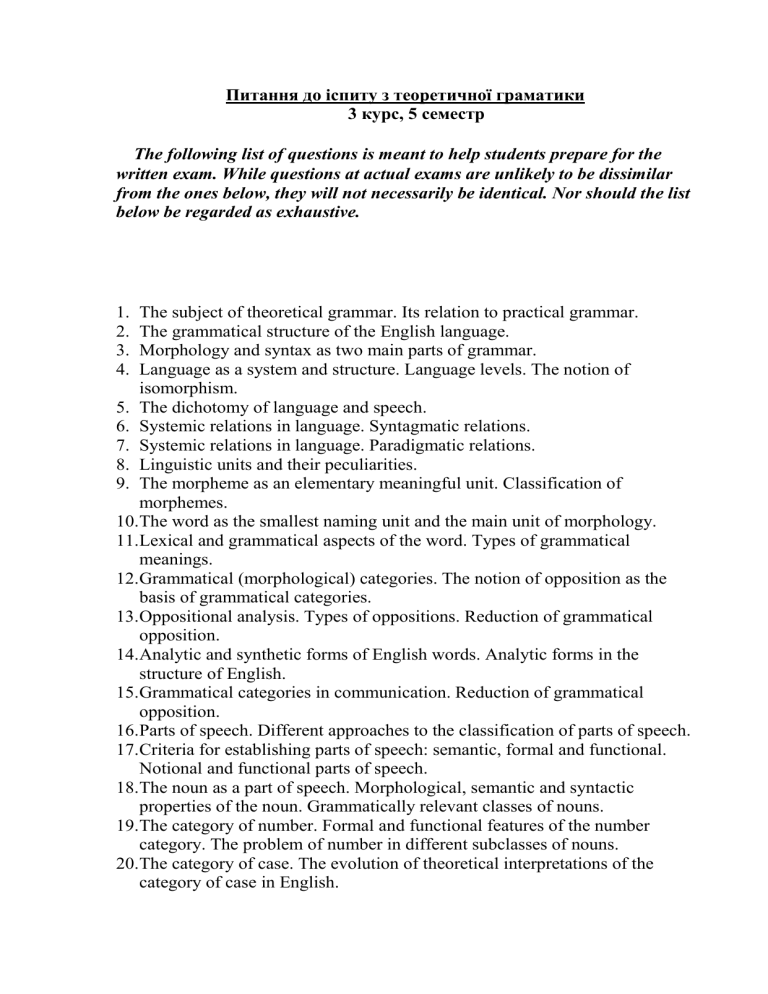
Питання до іспиту з теоретичної граматики 3 курс, 5 семестр The following list of questions is meant to help students prepare for the written exam. While questions at actual exams are unlikely to be dissimilar from the ones below, they will not necessarily be identical. Nor should the list below be regarded as exhaustive. 1. 2. 3. 4. The subject of theoretical grammar. Its relation to practical grammar. The grammatical structure of the English language. Morphology and syntax as two main parts of grammar. Language as a system and structure. Language levels. The notion of isomorphism. 5. The dichotomy of language and speech. 6. Systemic relations in language. Syntagmatic relations. 7. Systemic relations in language. Paradigmatic relations. 8. Linguistic units and their peculiarities. 9. The morpheme as an elementary meaningful unit. Classification of morphemes. 10.The word as the smallest naming unit and the main unit of morphology. 11.Lexical and grammatical aspects of the word. Types of grammatical meanings. 12.Grammatical (morphological) categories. The notion of opposition as the basis of grammatical categories. 13.Oppositional analysis. Types of oppositions. Reduction of grammatical opposition. 14.Analytic and synthetic forms of English words. Analytic forms in the structure of English. 15.Grammatical categories in communication. Reduction of grammatical opposition. 16.Parts of speech. Different approaches to the classification of parts of speech. 17.Criteria for establishing parts of speech: semantic, formal and functional. Notional and functional parts of speech. 18.The noun as a part of speech. Morphological, semantic and syntactic properties of the noun. Grammatically relevant classes of nouns. 19.The category of number. Formal and functional features of the number category. The problem of number in different subclasses of nouns. 20.The category of case. The evolution of theoretical interpretations of the category of case in English. 21.The problem of gender in English. Personal pronouns as gender indicators of nouns. Sex distinctions in the system of the noun. 22.Noun determiners. The article. The problem of the zero article. 23.The verb as a part of speech. Grammatically relevant subclasses of verbs (transitive/intransitive, terminative/nonterminative). 24.Verbs of complete predication, link verbs, auxiliary verbs. 25.Finite and non-finite forms of the verb. The category of finitude. 26.The verbal categories of person and number. 27.The category of tense in English. Tense oppositions. Absolute and relative tense meanings of English tense-forms. 28.The problem of perfect 29.The category of aspect. Aspect opposition. 30.The category of voice. Voice opposition. The number of voices in English. 31.The category of mood. The problem of mood opposition. Mood and modality. 32.Syntax as a part of grammar. Kinds of syntactic theories. 33.Modern approaches to the language study: textlinguistics, pragmatics, discourse analysis. 34.Basic syntactic notions: syntactic units, syntactic relations, syntactic connections. 35.General characteristics of the word-group. Types of word-groupes. 36.Nominal word combinations. Noun-phrases with pre-posed adjuncts. 37.Predication. Primary and secondary predication. Predicative word combinations. 38.The sentence. Structural and semantic characteristics of the sentence. Different approaches to the study of the sentence. 39.The simple sentence. Principal, secondary and detached parts of the sentence. 40.The hierarchical structure of the sentence. Immediate Constituents analysis. 41.The paradigm of a simple sentence. Kernel and derived sentences. Syntactic processes. 42.The utterance. Informative structure of the utterance. The theme and the rheme. 43.The utterance. Communicative and pragmatic types of utterances. 44.The complex sentence as a polypredicative construction. Types of subordinate clauses. 45.Pragmatic approach to the study of language units. 46.Basic notions of pragmatic linguistics.
